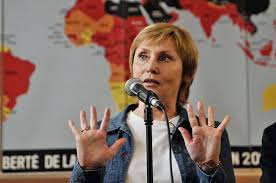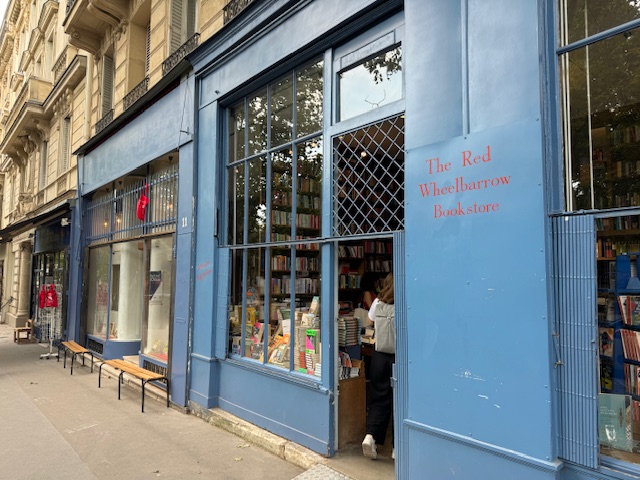Zhanna Agalakova has an Instagram page with stunning photos of Paris. She lives and works in the city near Clichy. I followed her for several years, admiring her photos. But one day the image on March 17, 2022, Zhanna posted a video of her cutting off her Первеу Канал (Russian Channel One) ID bracelet.
She ended a three-decade long career as a journalist in defiance of the Russian invasion of Ukraine. Her husband and daughter were with her in Paris where they now make their home. Zhanna's career is outlined on a Wikipedia page.
I met Zhanna in 2013 at the Ig Nobel Ceremony at Sanders Theater at Harvard University. Marc Abrahams, emcee of the ceremony and impresario of all things Ig Nobel, asked me to escort Russian and Japanese camera crews when they filmed. Sanders theater had very clear guidelines about the amount of time the crews could film. The Russian and Japanese crews were notorious for not understanding the restrictions, year after year.
From 2013 to 2018, I escorted Zhanna and Boris her cameraman into and out of the theater. In 2019, Zhanna returned to Paris where she had worked previously for Channel 1 Russia. Then in 2022, she quit very publicly and began a new life and career.
In 2023, Zhanna and I had coffee near Clichy. She told me about her break with Channel 1 and with Russia and President Vladimir Putin over the Russian invasion of Ukraine. I had hoped to talk to Zhanna again this trip, but maybe next time.














